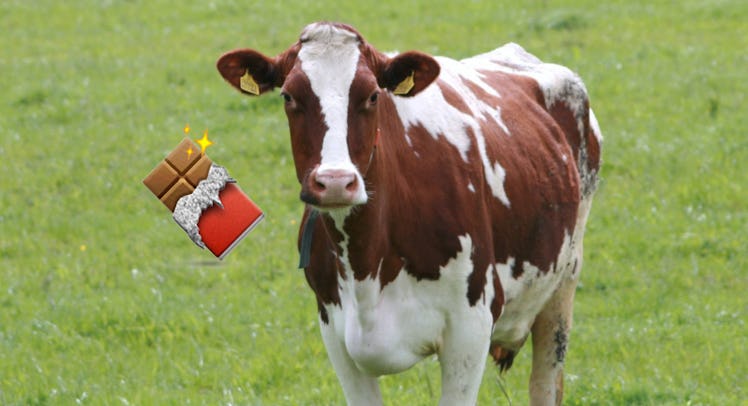New Survey Shows the Growth of Food Illiteracy in America
Food origin stories are becoming less and less familiar.

Earlier this year, the Innovation Center for U.S. Dairy conducted a survey of more than 1,000 adults and found that a shocking 48 percent of them did not know where chocolate milk came from. What’s more, seven percent of adults think chocolate milk comes from brown cows. The study quickly gained attention thanks to the seemingly absurd responses, with people having a good laugh at the idea of the type of milk being determined by the color of the cow. But the real story here is that 48 percent of people don’t now where chocolate comes from, another example of American’s growing food illiteracy.
If seven percent of people thinking chocolate milk comes from nature seems impossible, that’s probably because it is. While people are latching onto this story to expose the stupidity of Americans, the reality is that it’s highly likely that a number of those surveyed were presented with a multiple choice test and went with the purposely silly answer. The real story is that the study does expose that people are, in fact, ignorant about their food’s origin. And this could lead to big problems.
Wikimedia Commons
A survey from 2011 asked fourth, fifth, and sixth graders to answer basic questions about food, and found that more than half had no idea onions and lettuce were plants. Forty percent also did not know that hamburgers came from cows. It is believed that the reason so few people know these fundamental facts about food is because the average consumer is now so far removed from agriculture. When you can Fresh Direct your weekly produce or, even reach into vegetable bins at the supermarket, what does it matter to know that the onion originally came from a ground?
“Unfortunately, a majority of today’s consumers are at least three generations removed from agriculture, are not literate about where food comes from and how it is produced,” the National Institute for Animal Agriculture stated back in 2012.
So instead of making snarky jokes about strawberry milk coming from unicorns, perhaps we should focus on how to implement some much-needed education in regards to our complex food systems.
This article was originally published on